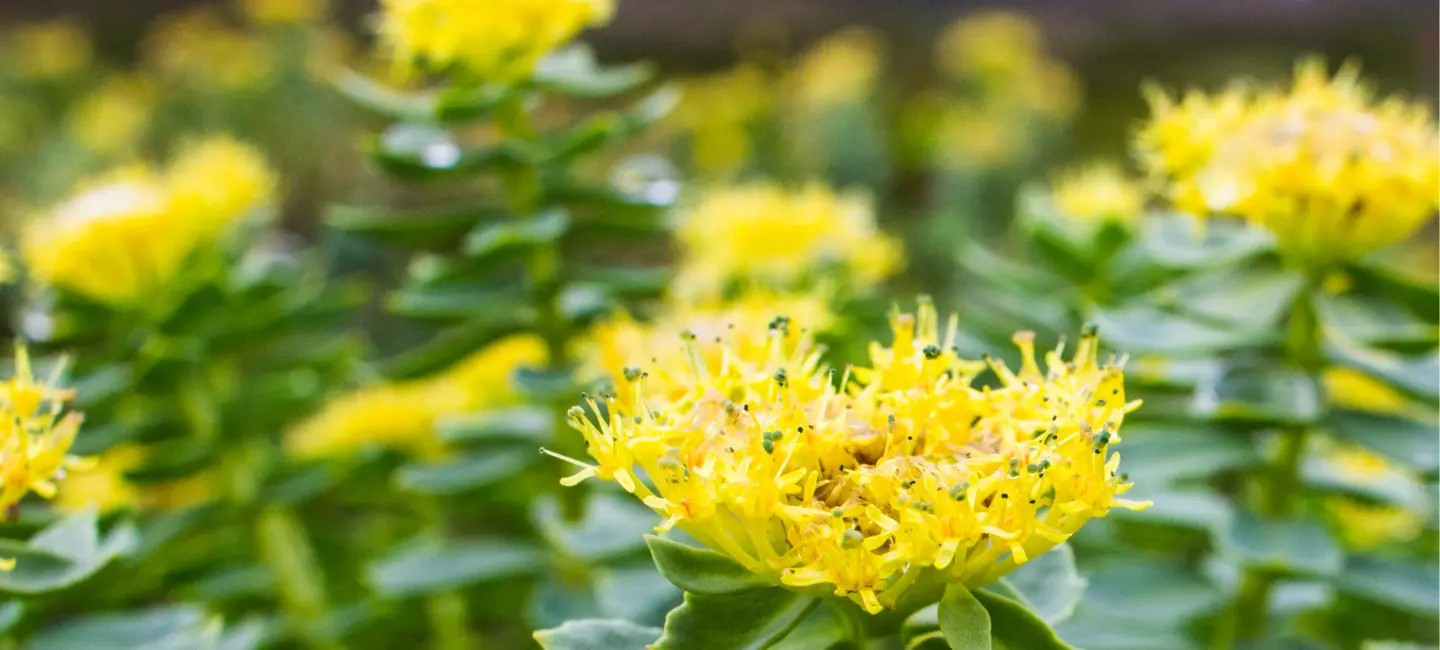
Rhodiola (Rhodiola rosea) is a plant that grows in cold parts of Europe and Asia. The root has a long history of use in traditional medicine.
Rhodiola is considered an adaptogen. Adaptogens are a class of natural substances that are believed to stimulate the body's resistance to physical, environmental, and emotional stressors. Rhodiola extract might help protect cells from damage and regulate heartbeat.
People use rhodiola for fatigue, anxiety, depression, stress, and many other conditions, but there is no good scientific evidence to support any of these uses.
Is It Effective?
There is interest in using rhodiola for a number of purposes, but there isn't enough reliable information to say whether it might be helpful.
Is it Safe?
When taken by mouth: Rhodiola is possibly safe when taken for 6-12 weeks. Rhodiola might cause dizziness, dry mouth, or excessive saliva. There isn't enough reliable information to know if rhodiola is safe to use long-term.
Special Precautions & Warnings:
Pregnancy and breast-feeding: There isn't enough reliable information to know if rhodiola is safe to use when pregnant or breast-feeding. Stay on the safe side and avoid use.
Autoimmune diseases: Rhodiola might stimulate the immune system. This might worsen autoimmune diseases, such as multiple sclerosis (MS), rheumatoid arthritis (RA), and others.
Losartan (Cozaar)
Interaction Rating=Moderate Be cautious with this combination.
Rhodiola might change how the body breaks down losartan. Taking rhodiola along with losartan might increase the effects and side effects of losartan.
Medications changed by the liver (Cytochrome P450 1A2 (CYP1A2) substrates)
Interaction Rating=Minor Be watchful with this combination.
Some medications are changed and broken down by the liver. Rhodiola might change how quickly the liver breaks down these medications. This could change the effects and side effects of these medications.
Medications changed by the liver (Cytochrome P450 2C9 (CYP2C9) substrates)
Interaction Rating=Moderate Be cautious with this combination.
Some medications are changed and broken down by the liver. Rhodiola might change how quickly the liver breaks down these medications. This could change the effects and side effects of these medications.
Medications changed by the liver (Cytochrome P450 3A4 (CYP3A4) substrates)
Interaction Rating=Minor Be watchful with this combination.
Some medications are changed and broken down by the liver. Rhodiola might change how quickly the liver breaks down these medications. This could change the effects and side effects of these medications.
Medications for diabetes (Antidiabetes drugs)
Interaction Rating=Moderate Be cautious with this combination.
Rhodiola might lower blood sugar levels. Taking rhodiola along with diabetes medications might cause blood sugar to drop too low. Monitor your blood sugar closely.
Medications for high blood pressure (Antihypertensive drugs)
Interaction Rating=Moderate Be cautious with this combination.
Rhodiola might lower blood pressure. Taking rhodiola along with medications that lower blood pressure might cause blood pressure to go too low. Monitor your blood pressure closely.
Medications moved by pumps in cells (P-glycoprotein substrates)
Interaction Rating=Moderate Be cautious with this combination.
Some medications are moved in and out of cells by pumps. Rhodiola might change how these pumps work and change how much medication stays in the body. In some cases, this might change the effects and side effects of a medication.
Medications that decrease the immune system (Immunosuppressants)
Interaction Rating=Moderate Be cautious with this combination.
Rhodiola can increase the activity of the immune system. Some medications, such as those used after a transplant, decrease the activity of the immune system. Taking rhodiola along with these medications might decrease the effects of these medications.
Herbs and supplements that might lower blood pressure: Rhodiola might lower blood pressure. Taking it with other supplements that have the same effect might cause blood pressure to drop too much. Examples of supplements with this effect include andrographis, casein peptides, L-arginine, niacin, and stinging nettle.
Herbs and supplements that might lower blood sugar: Rhodiola might lower blood sugar. Taking it with other supplements with similar effects might lower blood sugar too much. Examples of supplements with this effect include aloe, bitter melon, cassia cinnamon, chromium, and prickly pear cactus.
There are no known interactions with foods.
Rhodiola has most often been used by adults in doses of 100-600 mg by mouth daily for up to 12 weeks. Speak with a healthcare provider to find out what dose might be best for a specific condition.
Arctic Root, Extrait de Rhodiole, Golden Root, Hongjingtian, Hong Jing Tian, King's Crown, Lignum Rhodium, Orpin Rose, Racine d'Or, Racine Dorée, Racine de Rhadiola, Rhodiola rosea, Rhodiole, Rhodiole Rougeâtre, Rodia Riza, Rose Root, Rose Root Extract, Rosenroot, Roseroot, Rosewort, Sedum rhodiola, Sedum rosea, Siberian Golden Root, Siberian Rhodiola Rosea, Snowdown Rose.
Information on this website is for informational use only and is not intended to replace professional medical advice, diagnosis, or treatment. While evidence-based, it is not guaranteed to be error-free and is not intended to meet any particular user’s needs or requirements or to cover all possible uses, safety concerns, interactions, outcomes, or adverse effects. Always check with your doctor or other medical professional before making healthcare decisions (including taking any medication) and do not delay or disregard seeking medical advice or treatment based on any information displayed on this website.
© TRC Healthcare 2024. All rights reserved. Use and/or distribution is permitted only pursuant to a valid license or other permission from TRC Healthcare.
